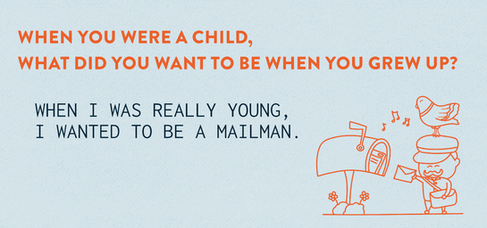Employee Spotlight: Mark Davis
- RIIsearcher

- Mar 21, 2023
- 3 min read

How would you describe your role at RII?
I’m a software engineer. In 2017, I started on an Android development team within RII and then transitioned to a large scale mission critical system project where I worked with an external customer and a team of other RII developers. As a member of the development team, I write and debug software on a daily basis.
You have a degree in history. How did you become interested in software engineering? Can you tell us about your career journey?
I started out studying history—everything from the French Revolution to writing a 17-page paper on the Dao. I really didn’t have a career plan as much as I should have, so I was flexible on what I would end up doing. Following graduation, I naturally drifted into programming after I tried my hand at web design and development by learning HTML/CSS and JavaScript. I really enjoyed building web pages and got fairly immersed in it. The skills I learned got me in the door of an IT department at an email marketing company, where I wrote HTML for mass email blasts.
I then learned PHP/MySQL (used for web scripting and databases) on my own and transitioned to a different job where I was one of two developers working on a web application for lobbyists to track state level legislation in a couple of states. I learned web scraping to gather the legislation from the states’ websites. I was living in Boston at the time and after work I would go to weekly tech meetups where I was exposed to really cool technology. At my next job, I was exposed to Java and Android and discovered that I really enjoyed writing Android applications. This is why I was originally hired by RII—to help build Android apps for the military.
Although I didn’t make a career out of my history degree, I don’t regret studying it. I learned a lot and it definitely helped hone my attention to detail that is necessary for programming.
What advice would you give to someone who is interested in programming, but doesn’t know where to start?
I would recommend learning HTML/CSS, and slowly incorporate JavaScript into your first page. Useful courses and books are available as well, in addition to free YouTube courses. If you do learn by book or through watching tutorials, you must actually practice the examples on your own or else it will be difficult to engrain the lessons. Once you find something you are willing to spend some time on, then be prepared to fail, get frustrated, and make repeated mistakes. This is how you will learn—by experience. You can use Google and resources such as Stack Overflow to overcome these hurdles. They will seem like insurmountable hurdles at the beginning, but they become par for the course in the long run if you decide to stick with it.
What is one of the most impactful or memorable projects you have worked on during your time at RII?
I was on an Artillery Program where our team was tasked with the development of a Smoke Screen Fire Mission. We had to work with subject matter experts (SMEs) and architecture to help calculate where a battalion of cannons would fire smoke rounds to create a smoke screen to protect friendly forces. This was extremely challenging. As you can imagine, the wind speed and other meteorological factors must be considered to predict where smoke is needed, how many rounds, and at what interval to fire rounds, which also depends on the intended duration of the smoke screen, where the friendlies are, and where the enemy is located. I will never forget this experience and the exhilarating feeling we got when we finally succeeded and saw the smoke rounds drawn on the map where we expected within the user interface of the application.






















Comments